
Find Help
More Items From Ergsy search
-
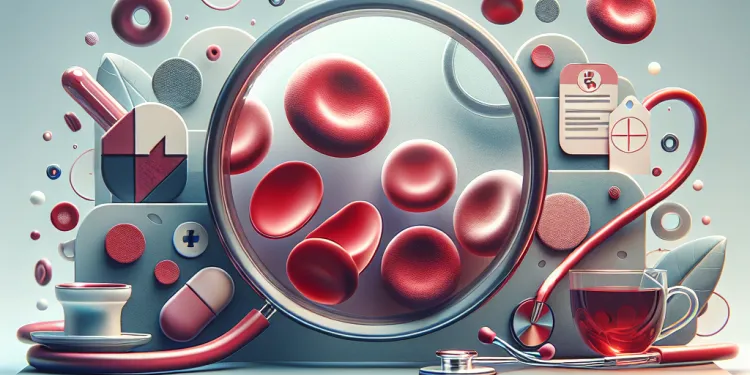
What is sickle cell disease?
Relevance: 100%
-

Introduction to Sickle cell disease
Relevance: 99%
-

How is sickle cell disease treated?
Relevance: 96%
-

How is sickle cell disease inherited?
Relevance: 94%
-

What are the symptoms of sickle cell disease?
Relevance: 94%
-
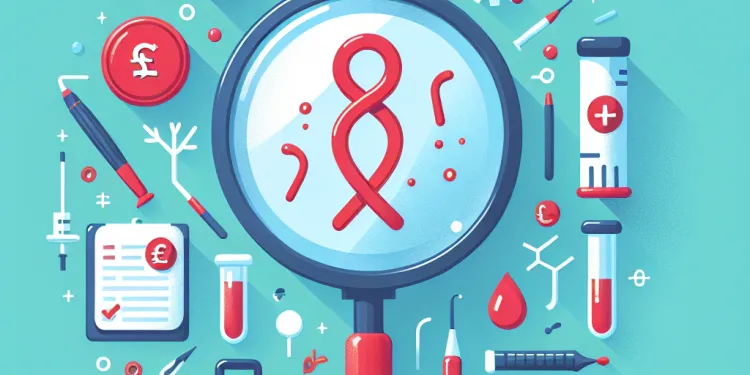
How is sickle cell disease diagnosed?
Relevance: 93%
-

What are the complications of sickle cell disease?
Relevance: 93%
-

Sickle cell anaemia | NHS
Relevance: 83%
-

Tour of the Sickle Cell and Thalassaemia Unit at City Hospital | SCaT
Relevance: 76%
-

Sickle cell patients share their experiences with the last NHS Chief Executive Amanda Pritchard
Relevance: 67%
-

What treatments are available for Alzheimer's disease?
Relevance: 35%
-

Will I be in a shared or single cell?
Relevance: 35%
-
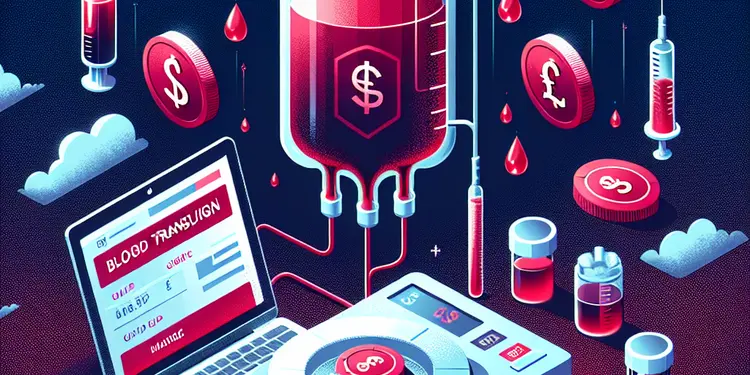
Why might someone need a blood transfusion?
Relevance: 35%
-
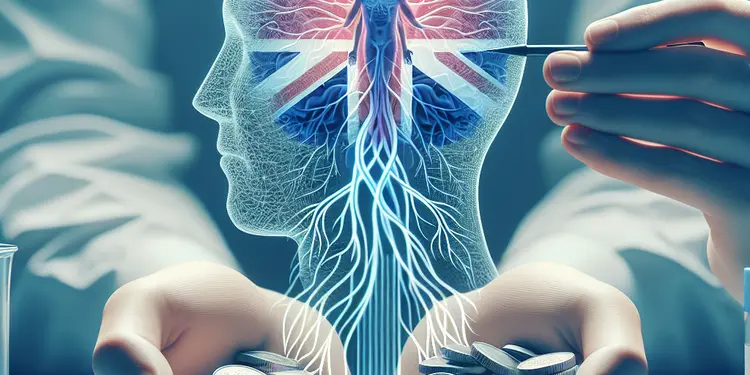
What treatments are available for motor neurone disease?
Relevance: 34%
-

What is Mitochondrial disease?
Relevance: 34%
-
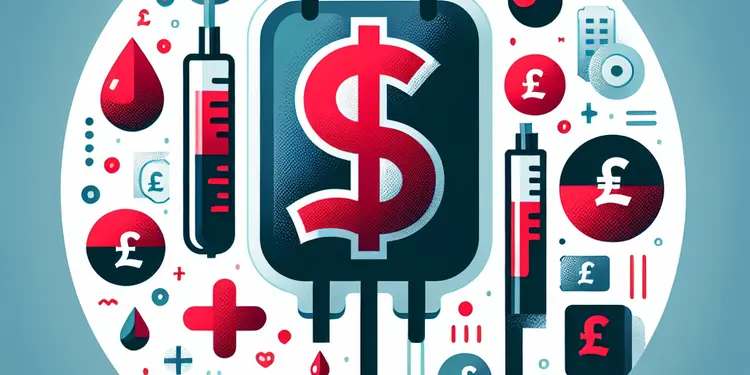
What are some common reasons blood transfusions are needed?
Relevance: 33%
-
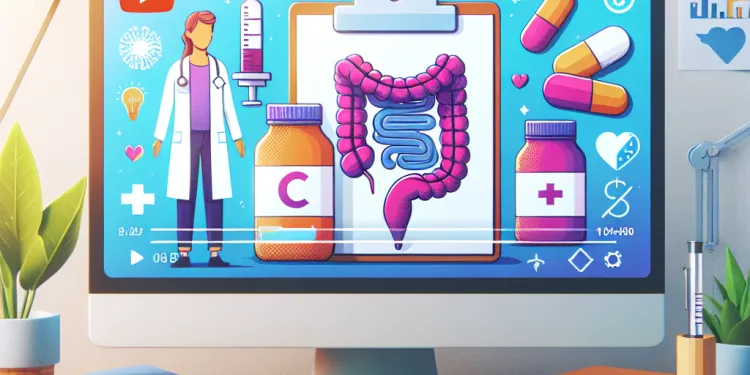
What treatments are available for Crohn's disease?
Relevance: 33%
-

Can Huntington's disease be cured?
Relevance: 31%
-

Chronic kidney disease: What are the treatments?
Relevance: 31%
-

Is there a cure for motor neurone disease?
Relevance: 31%
-

Can flesh-eating disease recur after treatment?
Relevance: 31%
-

When do I find out about my cell assignment?
Relevance: 30%
-

Anaemia One stop shop
Relevance: 29%
-

Are there treatments available for Huntington's disease?
Relevance: 28%
-

What research is being done on Huntington's disease?
Relevance: 28%
-
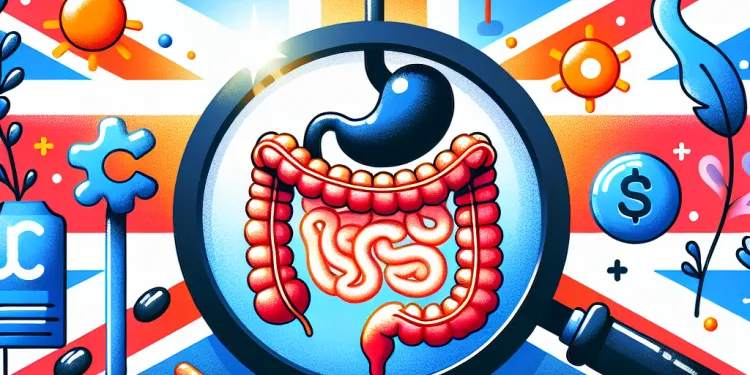
Is there a cure for Crohn's disease?
Relevance: 27%
-

What causes Huntington's disease?
Relevance: 26%
-

What is Huntington's disease?
Relevance: 25%
-

Is Huntington's disease fatal?
Relevance: 25%
-

Is Crohn's disease contagious?
Relevance: 25%
-
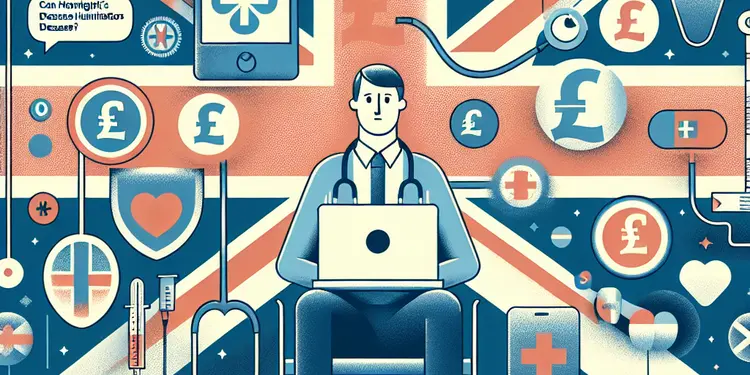
Can Huntington's disease be prevented?
Relevance: 25%
-

What is Parkinson's disease?
Relevance: 25%
-

Is motor neurone disease hereditary?
Relevance: 24%
-

What is Alzheimer's disease?
Relevance: 24%
-

What is Radiotherapy, and its use in treatment for cancers?
Relevance: 24%
-

How common is Alzheimer's disease in the UK?
Relevance: 24%
-

How does Huntington's disease affect movement?
Relevance: 24%
-

Coeliac disease
Relevance: 24%
-

What treatment options are available for bowel cancer?
Relevance: 24%
-

What are topical treatments for psoriasis?
Relevance: 24%
Understanding Sickle Cell Disease Treatment
Sickle cell disease (SCD) is a genetic disorder that affects haemoglobin, the molecule in red blood cells that delivers oxygen to cells throughout the body. The condition leads to the production of abnormal, sickle-shaped red blood cells that can cause blockages in blood flow, leading to pain and potential complications. In the UK, numerous treatments aim to manage and alleviate these symptoms, as well as prevent complications.
Hydroxycarbamide
Hydroxycarbamide, also known as hydroxyurea, is one of the primary medications used to treat sickle cell disease. It works by stimulating the production of fetal haemoglobin, a type of haemoglobin found in newborns that does not sickle. This helps reduce the number of sickle cell crises and can alleviate symptoms. Patients taking hydroxycarbamide require regular monitoring to check for side effects and ensure optimal dosing.
Blood Transfusions
Blood transfusions are another common treatment for sickle cell disease. They help to reduce complications by increasing the number of normal red blood cells in circulation, thereby improving oxygen delivery. Regular blood transfusions can prevent stroke, a serious risk for individuals with SCD. Exchange transfusions, where sickle cells are removed and replaced with normal cells, can also be used in specific cases. However, management of iron overload, a possible side effect, is crucial for patients undergoing frequent transfusions.
Bone Marrow and Stem Cell Transplantation
For some patients, a bone marrow or stem cell transplant can potentially cure sickle cell disease. This procedure involves replacing the diseased bone marrow with healthy marrow from a compatible donor. While this treatment can be highly effective, it carries significant risks, including graft-versus-host disease and infection. It is typically reserved for severe cases or patients with a suitable sibling donor.
Pain Management Strategies
Pain management is essential for individuals living with sickle cell disease since pain crises, also known as vaso-occlusive crises, are a common and debilitating symptom. Treatment options include non-steroidal anti-inflammatory drugs (NSAIDs), opioids, and supportive therapies such as heat application and hydration. Pain management plans are often tailored to the individual and may involve a multidisciplinary team comprising haematologists, pain specialists, and psychologists.
Preventive Measures and Lifestyle Adjustments
Prevention of complications is a fundamental aspect of treating sickle cell disease. Patients are encouraged to lead healthy lifestyles, stay well-hydrated, and avoid extreme temperatures and high altitudes. Vaccinations and regular health check-ups help prevent infections, which can trigger or aggravate sickle cell crises. The use of prophylactic antibiotics, especially in young children, is recommended to prevent severe infections like pneumonia.
Concluding Thoughts
Treatment for sickle cell disease in the UK is comprehensive and multifaceted, focusing on symptom management, prevention of complications, and, when possible, potential cures. Ongoing research continues to explore new therapies and improve existing ones, aiming to enhance the quality of life for those affected by this challenging condition. Engaging with healthcare providers and specialist centres can ensure patients access the latest and most effective treatment options.
Understanding Sickle Cell Disease Treatment
Sickle cell disease is a condition you are born with. It affects a part of your blood called haemoglobin. Haemoglobin helps carry oxygen to all parts of your body. If you have this disease, your red blood cells can change shape. They become like a sickle, which can block blood flow. This can cause pain and other problems. In the UK, there are different treatments to help manage the pain and stop further problems.
Hydroxycarbamide
Hydroxycarbamide is a medicine used to help people with sickle cell disease. It can make a special kind of haemoglobin that stops cells from sickling. This means fewer problems and less pain for people taking it. Doctors will need to check on you often if you are taking hydroxycarbamide to make sure it is working well and not causing side effects.
Blood Transfusions
Blood transfusions are another way to treat sickle cell disease. They add normal red blood cells to your body, which helps deliver oxygen better. This can prevent serious problems like a stroke. Sometimes, they take out sickle cells and replace them with healthy ones. This is called an exchange transfusion. But, if you have blood transfusions often, you may need to manage extra iron in your body.
Bone Marrow and Stem Cell Transplantation
Some people with very serious sickle cell disease might get a bone marrow or stem cell transplant. This means taking healthy bone marrow from another person and giving it to the sick person. This can sometimes cure the disease, but it has risks like infections. It usually is only done when a matching donor is available or for very severe cases.
Pain Management Strategies
Managing pain is very important for those with sickle cell disease because pain crises are common. Medicines like NSAIDs and opioids can help with pain. Other ways like using heat or drinking lots of water also help. Plans to manage pain should be made with doctors including blood specialists and possibly psychologists.
Preventive Measures and Lifestyle Adjustments
Preventing problems is key in treating sickle cell disease. Here are things that can help: live healthily, drink plenty of water, stay away from very hot or very cold places, and avoid high places like mountains. Vaccinations and regular doctor visits help prevent infections. Taking antibiotics can also help, especially in young children, to prevent bad infections like pneumonia.
Concluding Thoughts
Treating sickle cell disease in the UK helps to manage pain, prevent problems, and sometimes cure the disease. Doctors and researchers are working on new and better treatments all the time. It's important for people with this disease to keep in touch with their doctors and use the best treatments available.
Frequently Asked Questions
What is the main treatment for sickle cell disease?
The main treatment for sickle cell disease often includes pain management, antibiotics, blood transfusions, and the use of hydroxyurea to reduce complications.
How does hydroxyurea help in treating sickle cell disease?
Hydroxyurea helps by increasing the production of fetal hemoglobin, reducing the frequency of painful crises and the need for blood transfusions.
Are there any medications specifically used to treat sickle cell disease?
Yes, medications like hydroxyurea and L-glutamine (Endari) are used to treat sickle cell disease by reducing the frequency of pain episodes and acute complications.
What role do blood transfusions play in managing sickle cell disease?
Blood transfusions help treat and prevent complications like anemia and stroke by increasing the number of normal red blood cells in the bloodstream.
Can bone marrow transplant cure sickle cell disease?
Bone marrow transplant, also known as stem cell transplant, can potentially cure sickle cell disease, but it's usually reserved for severe cases due to the risks involved.
What are some common pain management strategies for sickle cell disease?
Pain management strategies include the use of over-the-counter pain relievers, prescription opioids, and techniques like heat therapy and hydration.
How are infections prevented in sickle cell patients?
Infections are prevented through vaccinations and prophylactic antibiotics, particularly for young children, to protect against pneumococcal infections.
What is the role of L-glutamine in sickle cell treatment?
L-glutamine, sold under the brand name Endari, helps reduce the frequency of pain crises in sickle cell patients.
Is gene therapy an option for treating sickle cell disease?
Gene therapy is an emerging option for treating sickle cell disease, with ongoing research and clinical trials showing promising results.
What lifestyle changes can help manage sickle cell disease?
Lifestyle changes such as staying hydrated, eating a healthy diet, avoiding extreme temperatures, and managing stress can help manage sickle cell disease.
How does regular follow-up care help sickle cell patients?
Regular follow-up care helps monitor the condition, manage symptoms, and prevent complications, ensuring better overall health for sickle cell patients.
Can folic acid supplements benefit sickle cell patients?
Yes, folic acid supplements are often recommended for sickle cell patients as they help produce new red blood cells.
What is a sickle cell crisis and how is it treated?
A sickle cell crisis is a painful episode caused by sickled red blood cells blocking blood flow. It is treated with pain medications, fluids, and oxygen therapy.
Are there any new medications for sickle cell disease?
Yes, medications like voxelotor and crizanlizumab have been approved to help manage sickle cell disease and reduce complications.
What is the importance of hydration in sickle cell treatment?
Staying hydrated helps prevent sickle cell crises by improving blood flow and reducing the likelihood of red blood cells sickling.
How does crizanlizumab work for sickle cell disease?
Crizanlizumab works by blocking a protein that causes cells to stick together in the blood vessels, reducing pain crises.
Why are routine health screenings important for sickle cell patients?
Routine health screenings help detect complications early, such as eye or lung issues, allowing for timely intervention and management.
How is chronic pain managed in sickle cell disease?
Chronic pain is managed through a combination of medications, physical therapy, cognitive behavioral therapy, and alternative treatments like acupuncture.
What role do vaccinations play in sickle cell disease management?
Vaccinations protect sickle cell patients from infections to which they are more susceptible, such as pneumonia and meningitis.
How can sickle cell patients manage stress?
Sickle cell patients can manage stress through relaxation techniques, counseling, support groups, and activities that promote mental well-being.
How do doctors help people with sickle cell disease?
The main ways to help people with sickle cell disease are:
- Helping with pain.
- Taking medicine like antibiotics to stop infections.
- Getting blood from healthy people, called blood transfusions.
- Taking a special medicine called hydroxyurea to make things better.
How does hydroxyurea help treat sickle cell disease?
Hydroxyurea is a medicine that helps people with sickle cell disease. It makes the red blood cells more round and less sticky. This means the blood can flow better in the body.
Using hydroxyurea can stop pain and keep you from going to the hospital. It is important to take the medicine as the doctor says.
If you find reading hard, you can try using pictures or listening to someone read it to you.
Hydroxyurea is a medicine.
It helps your body make more fetal hemoglobin.
This means you will have fewer painful problems.
You won't need as many blood transfusions.
If you find reading hard, you can:
- Use a ruler to follow the lines.
- Read with a friend or family member.
- Take breaks between reading.
Are there medicines for sickle cell disease?
Yes, there are medicines that can help people with sickle cell disease feel better. Some medicines can help reduce pain, and others can help prevent problems. It is important to talk to a doctor to find the right medicine for you.
You can ask an adult for help when reading about these medicines. Using pictures or videos can also help you understand more about sickle cell disease.
Yes, there are medicines that can help people with sickle cell disease. These medicines help stop pain and problems from happening too often. Some of these medicines are called hydroxyurea and L-glutamine (Endari).
How do blood transfusions help people with sickle cell disease?
Blood transfusions give new healthy blood to those who need it. This can make them feel better.
Steps to help:
- Talk to your doctor about how blood transfusions can help.
- Use pictures or videos to learn more about sickle cell disease and transfusions.
- Ask questions if you don’t understand something about the process.
Blood transfusions are a way to help people feel better. They add more healthy red blood cells to the blood. This can help stop problems like anemia and stroke.
Can a bone marrow transplant fix sickle cell disease?
A bone marrow transplant can help some people with sickle cell disease feel better. It is a special medical procedure where unhealthy bone marrow is replaced with healthy bone marrow from a donor.
If you or someone you know is considering this procedure, it's important to talk to a doctor to understand how it works and if it's a good choice.
Using pictures or videos can help explain the process. Asking questions to doctors or nurses can also make things clearer.
A bone marrow transplant, also called a stem cell transplant, can help fix sickle cell disease. It is like a special medical treatment. Doctors usually use it only when the sickle cell disease is very bad because it can be risky.
How can we help with pain for people with sickle cell disease?
Here are some ways to help with pain if you have sickle cell disease:
- Take medicine from your doctor. It can help stop the pain.
- Drink lots of water. This can help you feel better.
- Rest and get enough sleep. Your body needs energy to feel good.
- Use warm heat. A warm towel or pad can soothe pain.
- Try deep breathing. Breathing in and out slowly can relax you.
- Talk to a counselor. They can help you feel less stressed.
Tools like a pain diary can help you track when you feel pain. Show this to your doctor so they can help you better.
When you have pain, there are different ways to help. You can use medicines like pills you buy from the store, special medicines from the doctor, or try using a warm towel or drinking water.
How can people with sickle cell stay healthy and avoid getting infections?
We can stop infections by using vaccines and medicine. This is important for young children. It helps keep them safe from harmful germs.
How does L-glutamine help in treating sickle cell disease?
L-glutamine is a type of medicine. It helps people with sickle cell disease.
This medicine makes red blood cells healthier. Unhealthy red blood cells can cause pain and problems. L-glutamine helps to stop this.
If you have sickle cell disease, your doctor might talk to you about L-glutamine. It can help you feel better and have fewer sickle cell problems.
Reading tip: You can use tools like text-to-speech to help you read more easily.
L-glutamine is a medicine that helps people with sickle cell disease. It is sold as Endari. It helps stop pain problems from happening too often.
Can gene therapy help treat sickle cell disease?
Doctors are studying if gene therapy can help people with sickle cell disease. Sickle cell disease is a blood problem that can make you feel sick. Gene therapy is a special way to change genes to help people get better.
If you want to learn more, you can ask a doctor or look for books and videos about it. A friend or family member can also help you understand.
Scientists are working on a new way to help people with sickle cell disease called gene therapy. This new treatment is being tested to see if it works well, and the results look good so far.
Here are some tips to help understand this better:
- Break down big words into smaller parts.
- Use tools like a dictionary to learn what new words mean.
- Ask someone to read with you and explain things if you need help.
How can you change your daily life to feel better with sickle cell disease?
If you have sickle cell disease, changing some things in your daily life can help you feel better. Here are some simple ideas:
- Drink lots of water every day. This helps your blood flow better.
- Eat healthy foods like fruits and vegetables. They give you energy and keep you strong.
- Try to stay away from very hot or very cold places. This can help your body feel good.
- Get plenty of rest and sleep. It helps your body heal and grow.
- Talk to your doctor about medicines. They can give you the best advice.
- When you exercise, do it gently. Don't push yourself too hard.
Tools and tips that might help you:
- Use an app to remind you to drink water.
- Make a list of healthy meals with your family.
- Set a bedtime routine to help you sleep well.
There are small changes you can make to feel better if you have sickle cell disease. Drink lots of water, eat good food, stay away from very hot or cold places, and try not to worry too much.
How does regular follow-up care help people with sickle cell?
Seeing the doctor often helps people with sickle cell. It makes sure they are healthy.
Doctors can check for problems and help them feel better.
Going to appointments keeps patients safe and strong.
Helpful tools can be reminders on your phone or calendar to remember doctor visits.
Family and friends can also help by coming along to appointments for support.
Going to the doctor often helps keep track of your health. It helps you feel better and stops any problems before they start. This is very important for people with sickle cell disease.
Can folic acid pills help people with sickle cell disease?
Sickle cell disease is a blood problem. It can make you feel very tired or get sick easily. Folic acid is a vitamin. It helps your body make new blood.
People with sickle cell disease might need extra folic acid. Taking folic acid pills could help them feel better by making more healthy blood.
If you have sickle cell disease, talk to your doctor. They can tell you if folic acid pills are good for you.
To help you understand better, you can:
- Ask someone you trust to read with you.
- Use apps that read text out loud.
- Highlight or underline important parts to remember them.
Yes, people with sickle cell often need to take folic acid pills. These pills help make new, healthy red blood cells.
Tip: If reading is hard, try using audiobooks, picture books, or ask someone to read with you.
What is a sickle cell crisis and how do you treat it?
A sickle cell crisis is when the red blood cells change shape. They can block blood flow and hurt a lot.
Treatment:
- Take pain medicine.
- Drink lots of water.
- Keep warm and rest.
- Sometimes, go to the hospital if it is very bad.
If you have a sickle cell crisis, tell an adult and see a doctor. They can help you feel better.
A sickle cell crisis happens when red blood cells change shape and block blood flow. This can hurt a lot. To feel better, doctors use medicine for pain, give fluids to drink, and give oxygen to help breathing.
Are there new medicines for sickle cell disease?
Sickle cell disease is a blood problem. There are new medicines that can help. Ask your doctor about these new medicines.
If you find reading hard, you can ask someone to explain it to you. You can also use audiobooks or tools where the computer reads out loud to you.
Yes, there are medicines that can help people with sickle cell disease. Two of these medicines are called voxelotor and crizanlizumab. They can make people feel better and help stop some problems from happening.
Why is drinking water important for people with sickle cell?
Drinking lots of water helps keep blood flowing smoothly. This can stop sickle cell problems from happening. It makes sure red blood cells don't get stuck together.
How does crizanlizumab help with sickle cell disease?
Crizanlizumab is a medicine. It helps people with sickle cell disease. This disease causes pain and can make people very tired.
Crizanlizumab works by stopping some of the sickle cell problems. It helps blood flow better through the body. This can reduce pain and help people feel better.
If you want to know more, you can:
- Talk to your doctor or nurse.
- Use a chart or picture to understand better.
- Ask someone you trust to explain it to you.
Crizanlizumab helps by stopping a protein in the blood. This protein makes cells stick together and causes pain. Crizanlizumab makes the pain better.
Why are regular health check-ups important for people with sickle cell?
Regular health check-ups help find problems early. This is important for people with sickle cell. Finding problems early means they can get help sooner. This keeps them healthier and feeling better.
People with sickle cell might need extra tests. Doctors check their blood and do other tests to make sure they are okay. If doctors find something wrong, they can help right away.
It is good to keep a schedule for check-ups. Ask a family member, friend, or nurse for help making appointments. Use reminders like a calendar or phone alarm to remember when to go.
Regular health check-ups can find problems early. This can be things like eye or lung issues. Finding them early helps doctors treat them quickly.
How do we help with long-term pain in sickle cell disease?
To help with pain that lasts a long time, people can try different things. They can use medicine, see a special doctor for exercises, talk to someone about their feelings, or try things like acupuncture.
How do vaccines help people with sickle cell disease?
Vaccines are shots that help keep you from getting sick. They are very important for people with sickle cell disease. Sickle cell disease makes it hard for the body to fight germs.
When people with sickle cell disease get vaccinated, it helps protect them from dangerous illnesses. This keeps them healthy and strong.
If you or someone you know has sickle cell disease, make sure to talk to a doctor about getting the right vaccines. It’s important to stay healthy!
Using pictures and simple charts can help you understand more about vaccines. You can also ask someone you trust to explain things to you.
Vaccines help keep people with sickle cell safe from getting sick. They stop problems like pneumonia and meningitis from happening.
How can people with sickle cell feel less stressed?
Sickle cell is a disease that affects the blood. It can make people feel tired and in pain. It's important for them to stay calm and happy.
Here are some simple ways to feel better:
- Talk to someone: Sharing your feelings with a friend or family member can help.
- Take deep breaths: Breathing slowly can help you relax.
- Do something fun: Playing a game, drawing, or listening to music can make you feel good.
- Rest well: Make sure to get a good night's sleep. Sleeping helps your body feel strong.
- Eat healthy food: Eating fruits and vegetables can give you energy.
Use these ideas to help you feel less stressed and more happy.
People with sickle cell can feel better by doing things to relax, talking to a counselor, joining support groups, and doing fun activities that make them happy.
Useful Links
This website offers general information and is not a substitute for professional advice.
Always seek guidance from qualified professionals.
If you have any medical concerns or need urgent help, contact a healthcare professional or emergency services immediately.
Some of this content was generated with AI assistance. We’ve done our best to keep it accurate, helpful, and human-friendly.
- Ergsy carfully checks the information in the videos we provide here.
- Videos shown by Youtube after a video has completed, have NOT been reviewed by ERGSY.
- To view, click the arrow in centre of video.
- Most of the videos you find here will have subtitles and/or closed captions available.
- You may need to turn these on, and choose your preferred language.
- Go to the video you'd like to watch.
- If closed captions (CC) are available, settings will be visible on the bottom right of the video player.
- To turn on Captions, click settings .
- To turn off Captions, click settings again.
More Items From Ergsy search
-

What is sickle cell disease?
Relevance: 100%
-

Introduction to Sickle cell disease
Relevance: 99%
-

How is sickle cell disease treated?
Relevance: 96%
-

How is sickle cell disease inherited?
Relevance: 94%
-

What are the symptoms of sickle cell disease?
Relevance: 94%
-

How is sickle cell disease diagnosed?
Relevance: 93%
-

What are the complications of sickle cell disease?
Relevance: 93%
-

Sickle cell anaemia | NHS
Relevance: 83%
-

Tour of the Sickle Cell and Thalassaemia Unit at City Hospital | SCaT
Relevance: 76%
-

Sickle cell patients share their experiences with the last NHS Chief Executive Amanda Pritchard
Relevance: 67%
-

What treatments are available for Alzheimer's disease?
Relevance: 35%
-

Will I be in a shared or single cell?
Relevance: 35%
-

Why might someone need a blood transfusion?
Relevance: 35%
-

What treatments are available for motor neurone disease?
Relevance: 34%
-

What is Mitochondrial disease?
Relevance: 34%
-

What are some common reasons blood transfusions are needed?
Relevance: 33%
-

What treatments are available for Crohn's disease?
Relevance: 33%
-

Can Huntington's disease be cured?
Relevance: 31%
-

Chronic kidney disease: What are the treatments?
Relevance: 31%
-

Is there a cure for motor neurone disease?
Relevance: 31%
-

Can flesh-eating disease recur after treatment?
Relevance: 31%
-

When do I find out about my cell assignment?
Relevance: 30%
-

Anaemia One stop shop
Relevance: 29%
-

Are there treatments available for Huntington's disease?
Relevance: 28%
-

What research is being done on Huntington's disease?
Relevance: 28%
-

Is there a cure for Crohn's disease?
Relevance: 27%
-

What causes Huntington's disease?
Relevance: 26%
-

What is Huntington's disease?
Relevance: 25%
-

Is Huntington's disease fatal?
Relevance: 25%
-

Is Crohn's disease contagious?
Relevance: 25%
-

Can Huntington's disease be prevented?
Relevance: 25%
-

What is Parkinson's disease?
Relevance: 25%
-

Is motor neurone disease hereditary?
Relevance: 24%
-

What is Alzheimer's disease?
Relevance: 24%
-

What is Radiotherapy, and its use in treatment for cancers?
Relevance: 24%
-

How common is Alzheimer's disease in the UK?
Relevance: 24%
-

How does Huntington's disease affect movement?
Relevance: 24%
-

Coeliac disease
Relevance: 24%
-

What treatment options are available for bowel cancer?
Relevance: 24%
-

What are topical treatments for psoriasis?
Relevance: 24%


